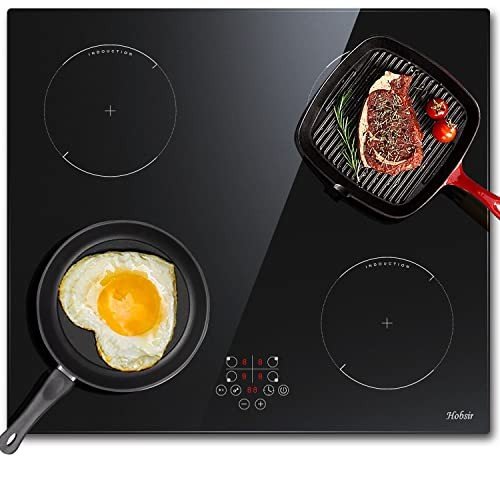Understanding Electric Ovens and Hobs: Your Guide to Cooking Efficiency
Electric ovens and hobs have changed the culinary landscape, using home cooks and expert chefs a reputable, effective, and constant method to prepare meals. As technological developments continue to affect device style, the performance and performance of electric cooking systems have considerably improved. This article explores the functions, benefits, and considerations surrounding electric ovens and hobs, supplying a comprehensive overview for anybody looking to update or purchase kitchen home appliances.
What Are Electric Ovens and Hobs?
Electric ovens are kitchen appliances created for baking, broiling, roasting, and other cooking methods that need controlled heat. They utilize electric coils or radiant heat components to produce and maintain the preferred temperature level. Ovens Online , often referred to as electric cooktops, are flat surface areas with heating components that allow pots and pans to be positioned directly on them for cooking.
Table 1: Key Differences Between Electric Ovens and Hobs
| Function | Electric Oven | Electric Hob |
|---|---|---|
| Main Function | Baking, roasting, broiling | Heating pots and pans for cooking |
| Heating Method | Electric coils or glowing components | Induction, glowing, or ceramic components |
| Operation Temperature Range | Up to 500 ° F (260 ° C | ) Varies by design; usually lower than ovens |
| Cooking Styles | Versatile; ideal for different dishes | Primarily stovetop cooking techniques |
| Area Requirement | Generally built into cabinets | Typically standalone or integrated options |
| Energy Consumption | Usually higher, depending upon usage | More energy-efficient with induction hobs |
Benefits of Electric Ovens and Hobs
When considering electric ovens and hobs, it's necessary to comprehend their many advantages, which can improve the cooking experience.
1. Consistent Heating
Electric ovens and hobs offer even and constant heating, which is important for many cooking techniques. This guarantees that dishes cook consistently, decreasing the possibilities of overcooking or undercooking particular areas of food.
2. Security Features
Modern electric ovens and hobs come geared up with various security features to avoid mishaps in the kitchen. For circumstances, many models include automated shut-off functions, hot surface area indications, and child safety locks.
3. Easy to Use
Unlike gas designs, electric ovens and hobs are straightforward and user-friendly. The simplicity of switching on a dial or pushing a button makes them accessible for cooks of all ability levels.
4. Versatile Cooking Options
With numerous cooking techniques possible, from baking to simmering, electric designs are versatile adequate to accommodate a wide variety of cooking styles and preferences.
5. Cleaning and Maintenance
Electric ovens usually feature smooth surface areas that are easy to clean, especially designs with self-cleaning capabilities. Hobs, specifically induction types, likewise provide a flat surface area that is simple to clean down, making maintenance a breeze.
Popular Types of Electric Ovens:
- Conventional Ovens: Ideal for traditional baking and roasting.
- Convection Ovens: Circulate hot air for faster, even cooking.
- Microwave Ovens: Use electro-magnetic radiation for quick heating and cooking.
- Toaster: Small countertop ovens for fast tasks.
Popular Types of Electric Hobs:
- Induction Hobs: Utilize magnetic fields for rapid heating and energy performance.
- Glowing Hobs: Feature electric coils that warm up to cook food.
- Ceramic Hobs: Offer a smooth surface area and are simple to clean.
Considerations When Choosing Electric Ovens and Hobs
While electric ovens and hobs offer numerous benefits, numerous aspects need to be considered to ensure the right fit for your kitchen:
1. Space Availability
Evaluate the offered kitchen space before purchasing. Identify whether you require an integrated design or a freestanding home appliance, and measure the measurements thoroughly to make sure an excellent fit.
2. Cooking Needs
Identify your cooking habits and preferences. If Fan Oven Sales bake big amounts or cook complex meals, consider an oven with advanced features like convection settings or multiple racks.
3. Energy Efficiency
Search for energy-efficient designs that can conserve on utility costs in time. Ovens & Hobs -rated home appliances can be especially cost-efficient.
4. Spending plan
Set a realistic spending plan that accounts for both the preliminary purchase and ongoing operating expenses. In addition to the appliance cost, aspect in setup and prospective repair work.
5. Extra Features
Consider whether features like wise innovation, programmable settings, or steam cooking alternatives are necessary for your cooking design.
Frequently asked question Section
Q: How do I tidy my electric oven?
A: Most electric ovens included self-cleaning alternatives. If your model does not have this feature, permit the oven to cool, then wipe down surface areas with a mix of baking soda and water or a business oven cleaner.
Q: Is induction cooking safe?
A: Yes, induction cooking is thought about safe as the heating component only triggers when suitable cookware touches with it, reducing the threat of burns.
Q: How long does it consider an electric oven to preheat?
A: Preheating times differ based on the oven's design and temperature setting however normally vary from 10 to 15 minutes.
Q: Can I use any cookware on an induction hob?
A: No, only ferromagnetic cookware is suitable with induction hobs. Look for induction compatibility before usage to avoid damage.
Q: What is the distinction in between a stove and a traditional electric oven?
A: A convection oven consists of a fan that flows hot air, guaranteeing even cooking and decreased cooking times compared to a traditional electric oven, which does not have this feature.
Electric ovens and hobs provide a modern-day option to numerous cooking requirements, using efficiency and dependability in the kitchen. As consumers examine their choices, understanding the features, types, and factors to consider will allow them to make informed choices. Whether one is an occasional cook or a cooking lover, electric home appliances can improve the general cooking experience, bringing benefit and imagination to the table.

